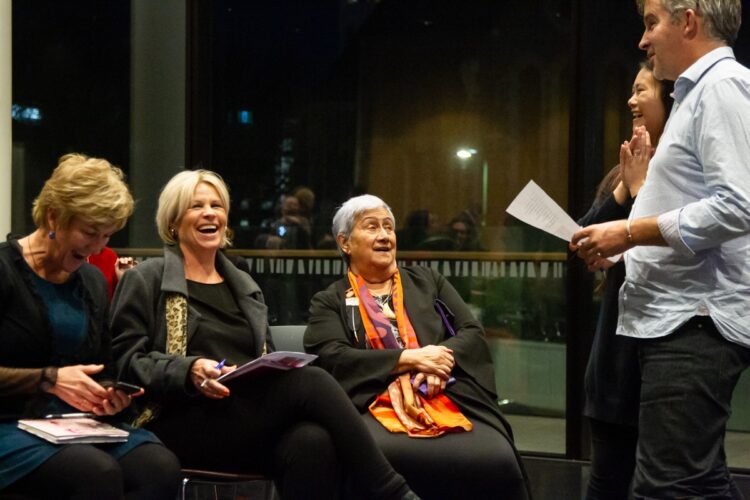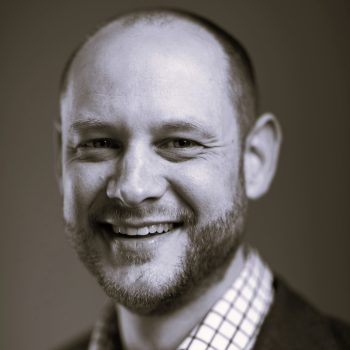
February 1st, 2022
Te Tiriti o Waitangi in Leadership
Taking steps toward digital equity in Aotearoa
I was asked recently why te ao Māori and Te Tiriti o Waitangi were so important to me, as a Pākehā. After some reflection, I have collated some of my thoughts regarding this hugely important kaupapa.
The full version of this article originally appeared on the Think e-Learning blog, for education leaders involved in digital transformation. The article unpacks my whakaaro in more detail and suggests some practical next steps for others on this haerenga. It also gives some background to my journey and acknowledges the Māori friends and colleagues who have challenged and guided my thinking up to this point.
Here’s a summary of some of the points in that article:
Mana taurite: equity
Ensuring equity for all is no simple task. And we, as leaders, cannot design programmes that are equally accessible and equally beneficial to all in Aotearoa, without engaging with—and taking direction from—the very communities affected most by inequity.
This certainly includes tāngata whenua.
Whakawhanaungatanga: creating relationships
It’s clear, then, that we must engage with tāngata whenua.
To complicate things, however, whilst there are certainly shared experiences amongst Māori across the country, there is no such thing as “the Māori perspective” that you can access to tick a box in your consultation process.
We need to build relationships and engage with local hapū—with manawhenua, those who hold the authority and respect in a particular area. Not just learning generic Māori principles or tikanga, but those held by the local tangata whenua; as well as the kaupapa and take—issues and topics—that are particularly important to manawhenua in your area.
Kanohi kitea: the seen face, the known face
There’s a concept in te ao Māori that I have found particularly helpful in understanding what real engagement looks like. It’s the concept of “kanohi kitea”—the “seen face” . Only when we keep engaging, keep listening, keep showing up, can we build a relationship that goes beyond mere tokenism or box-ticking. Only when we become a “known face” can there be trust.
Me whakarongo ki te ako, me ako ki te whakarongo: listen to learn, learn to listen.
For leaders to truly honour Te Tiriti o Waitangi, we must take an attitude of listening rather than leading from our own experience alone. And from that listening without interruption will come more insight, more direction, and more learning.
Go back regularly. Keep showing up. Become kanohi kitea. Listen quietly. Learn
Stephen McConnachie | Consultant, Leadership Lab and Think E-learning

February 1st, 2022
Te Tiriti o Waitangi in Leadership
Taking steps toward digital equity in Aotearoa
I was asked recently why te ao Māori and Te Tiriti o Waitangi were so important to me, as a Pākehā. After some reflection, I have collated some of my thoughts regarding this hugely important kaupapa.
The full version of this article originally appeared on the Think e-Learning blog, for education leaders involved in digital transformation. The article unpacks my whakaaro in more detail and suggests some practical next steps for others on this haerenga. It also gives some background to my journey and acknowledges the Māori friends and colleagues who have challenged and guided my thinking up to this point.
Here’s a summary of some of the points in that article:
Mana taurite: equity
Ensuring equity for all is no simple task. And we, as leaders, cannot design programmes that are equally accessible and equally beneficial to all in Aotearoa, without engaging with—and taking direction from—the very communities affected most by inequity.
This certainly includes tāngata whenua.
Whakawhanaungatanga: creating relationships
It’s clear, then, that we must engage with tāngata whenua.
To complicate things, however, whilst there are certainly shared experiences amongst Māori across the country, there is no such thing as “the Māori perspective” that you can access to tick a box in your consultation process.
We need to build relationships and engage with local hapū—with manawhenua, those who hold the authority and respect in a particular area. Not just learning generic Māori principles or tikanga, but those held by the local tangata whenua; as well as the kaupapa and take—issues and topics—that are particularly important to manawhenua in your area.
Kanohi kitea: the seen face, the known face
There’s a concept in te ao Māori that I have found particularly helpful in understanding what real engagement looks like. It’s the concept of “kanohi kitea”—the “seen face” . Only when we keep engaging, keep listening, keep showing up, can we build a relationship that goes beyond mere tokenism or box-ticking. Only when we become a “known face” can there be trust.
Me whakarongo ki te ako, me ako ki te whakarongo: listen to learn, learn to listen.
For leaders to truly honour Te Tiriti o Waitangi, we must take an attitude of listening rather than leading from our own experience alone. And from that listening without interruption will come more insight, more direction, and more learning.
Go back regularly. Keep showing up. Become kanohi kitea. Listen quietly. Learn
Stephen McConnachie | Consultant, Leadership Lab and Think E-learning


